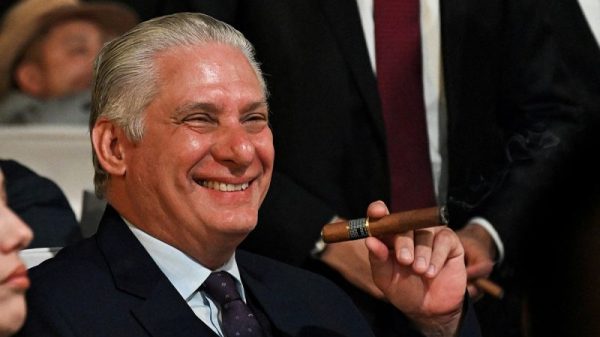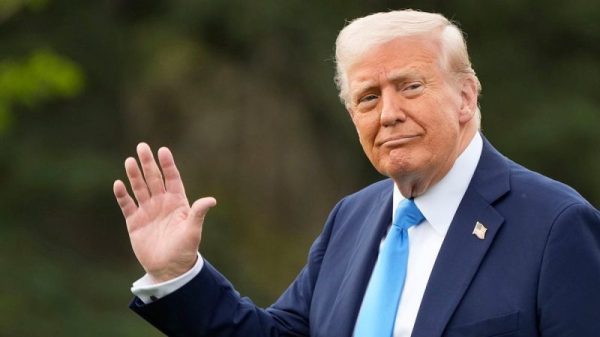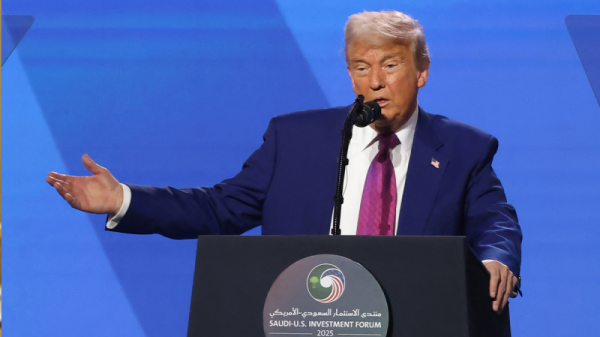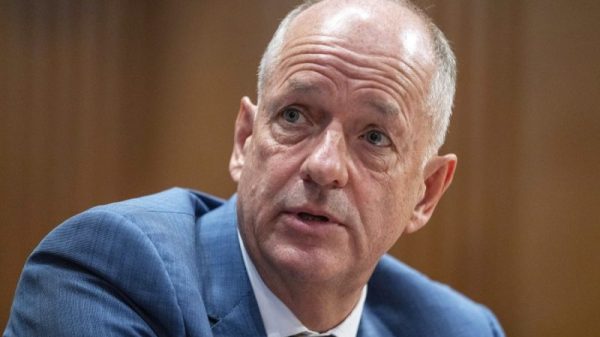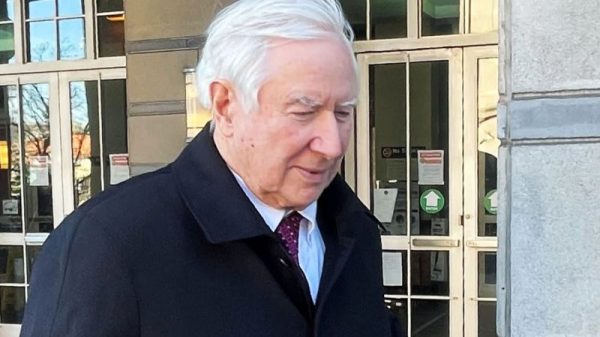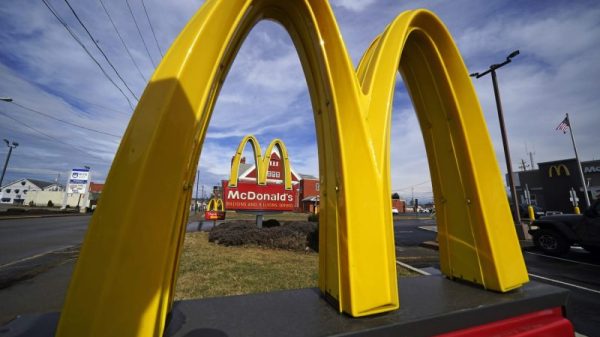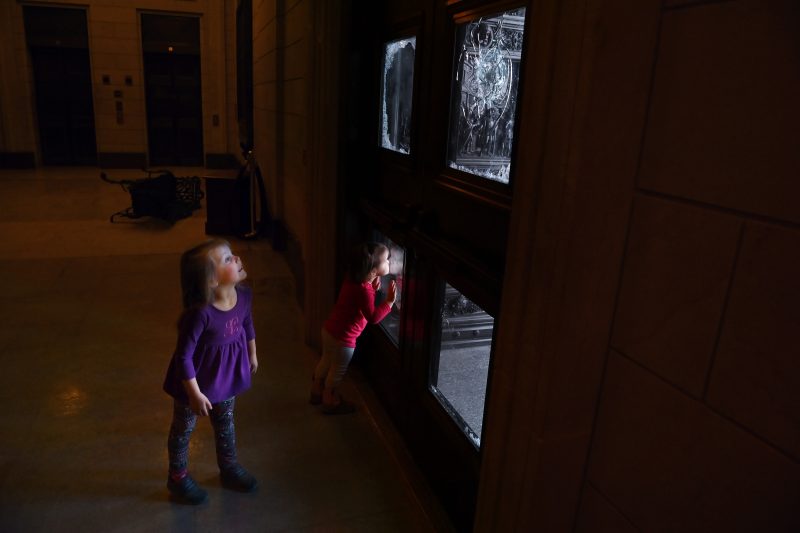We saw it coming.
For months before the 2020 presidential election, President Donald Trump was elevating baseless or nonsensical claims about the security of mail-in ballots. It was transparent in its intent. He went on TV and said that making it easier to vote was bad for Republicans, and in 2020 “bad for Republicans” meant “bad for Trump.” But the nation had already settled into its trenches, with an established pattern of Trump making false claims, his allies pretending they were legitimate and his base ignoring the explanations of independent adjudicators about why they weren’t.
As the election drew closer, Trump’s gambit became explicit. He would take advantage of the gap between counting votes cast on Election Day and those submitted by mail to pretend that the election was being stolen from him. His aides and allies talked about it. There was even reporting that he was going to simply say he had won even before most of the votes were counted. Which he did.
Had this been the culmination of Trump’s effort to retain power, it would have been obvious and polarizing, but it would not have been criminal. But the culmination was still months away. Over that ensuing period, Trump tried, with increasing obviousness and decreasing connection to reality, to stay president. He fought his loss even after law enforcement and the military had managed to reclaim the U.S. Capitol from violent supporters he’d enlisted to his cause. And he did it all right in the open, as the country watched in alarm or excitement, depending on the trench in which they sat.
The indictment issued by a federal grand jury in Washington on Tuesday is a historic document, for obvious reasons. It is distinct from Trump’s previous indictments in part because of its scale. This wasn’t hush money payments to an adult-film actress or trying to hang on to classified documents from his time as president. This indictment makes the case that Trump was trying to dismantle democracy. This was Trump trying to orchestrate a mechanism through which he got to keep flying around on Air Force One, whatever the costs to the country. This particular U.S. v. Trump is, more so than the other indictment obtained by special counsel Jack Smith, very much about Trump vs. the U.S.
And, unlike those other indictments, we saw it happen as it unfolded.
The charges it includes are ones that would have been foreign to non-attorney observers a few years ago — what did it mean to conspire to defraud the nation? But we watched what Trump did. We saw how, in the days after the election, he elevated obviously false arguments about fraud and boosted obviously unreliable storytellers who were saying what he wanted people to hear.
We marveled at the anonymous quote a Republican official gave to The Washington Post: “What is the downside for humoring him for this little bit of time? No one seriously thinks the results will change. … It’s not like he’s plotting how to prevent Joe Biden from taking power on Jan. 20.” For many observers, it seemed obviously fraught to let a sitting president blow off steam by energetically eroding confidence in the results of the election, even if we didn’t yet know that he very much was plotting against Biden.
His allies sat down on Dec. 14, 2020, and pretended they were casting electoral votes on his behalf even in states he lost. In many cases, they did it on camera. They talked about it. It was all out in the open, to the extent that it seemed like … maybe this was just taking complaints about losing the election and turning them up to 11? The nation was the proverbial frog in warming water; sure, it was uncomfortable, but acclimation occurred quickly.
By early January 2021, the water was scalding. Reports of angry meetings at the White House. Disruptions in the leadership of the Justice Department. Warnings about the threats posed to state election workers. And Trump, running out of options, demanding that his supporters come to Washington on Jan. 6. His millions of supporters were being crowded into a narrower and narrower path toward retaining him as president, jostling and growing angrier. And the path led to the Capitol steps.
We saw all this happen. We saw what happened next.
The Trump era has been defined in part by emphasizing the concerns of him and his base above those of everyone else. This was a function of the novelty of Trump; he is skilled at getting attention and is indifferent about straying outside constraints. It was also a reaction to the 2016 election itself: that his victory was so unexpected triggered a hyperactive focus on the movement that undergirded it. His base was given outsize primacy, particularly since it constituted a minority of the electorate, not to mention the population.
But the 180-million-plus American adults who didn’t cast a vote for Trump largely saw what unfolded in the aftermath of the 2020 election for what it was: an aggressively hostile reaction from an established fabulist aimed at keeping him in the White House. A president who came to the job without any demonstrable respect for the institution itself tried to avoid having to give it up. And he was willing to do whatever he could to make that happen.
And we saw it. We saw the fake electors and we saw the riot and we saw a pillow salesman show up at the White House with plans to declare martial law. We watched all of this and — those of us who were not snookered into believing that the election was stolen or who weren’t willing to delude ourselves into accepting some alternative narrative about the election being “rigged” — wondered why there were no apparent consequences.
What makes Trump’s third indictment different is that we saw what the grand jury felt constituted a crime unfold in front of our eyes. What makes it different is that we were all the victims of the alleged criminal behavior. All of us, every American. Even Trump’s supporters.
What makes it different is that, for the first time, there may be actual consequences for what Trump tried to do.

